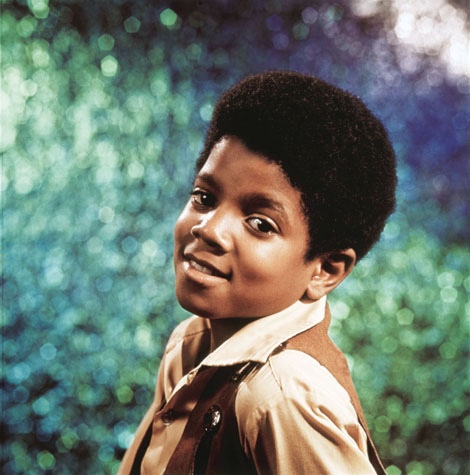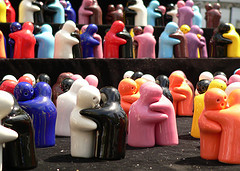
With the internet abuzz this week trying to get the first/latest/best look at Michael Jackson‘s body, Farah Fawcett‘s funeral, and Mr. Jackson’s financial papers, it may finally be time to talk about celebrity death culture here at the Interdependence Project weblog.
What exactly is celebrity death culture? It is a culture that honors and supports a media system and private conversation about matters that do not concern us, masquerading as curiosity, free speech rights, and a “free press”. You may notice that my definition could be broadly applied to forms of entertainment besides the death of Jackson, Fawcett, and other humans like them – non-fiction television (aka reality shows) certainly fit the bill. But so does an awful lot of “news”.
In our Hardcore Dharma class, we’ve talked about the precepts surrounding right speech, and the issue has been brought up “when does news become gossip or “idle chatter”?” I.e. when do we cross the line from being informed to being distracted, using news and information as a way to tune out from the present moment.
I am throwing the prayer flag of dis-attention and saying that right now, as a culture we are using the deaths of Farrah Fawcett and Michael Jackson to distract us from present moment awareness. Duh. But why?
Is it that by talking endlessly about these stars, their sickness, their finances, their legacies, we somehow hope to forget about our own mortality for a moment? Over 140,000 other people died the same day as Michael and Farrah, yet very few of them made the news. Does our obsession with celebrity death speak to a false sense of connection we make to these people? Not that we are not connected to people who achieve fame – they are part of the same web of interdependence that we are all stuck in – but our connection to them is no greater than (or discrete than) our connection to the other 140,000 who died on June 25th 2009.
Someone who made a part of your mobile phone may have died on June 25th. Someone whose life was touched by a student whose life you changed may have died on June 25th. Someone you spent a weekend with in Paris on a college vacation, then lost touch with, may have died June 25th. Someone you know even more directly may have died that day.
I believe that our obsession with celebrity death culture speaks directly to the Buddhist concept of shunyata, or emptiness. Celebrity does not exist; it is a concept created from the void by the attention of media, corporate entertainment conglomerates, and people eager to project their own fantasies and failures onto an-other. It is a profit making egomachine that milks us of our dissatisfaction and then feeds it back to us in concentraed sticky-syrupy form. Deepak Chopra’s lovely tribute to Michael is the only thing I’ve read that begins to get at the fact that a loving, living, breathing human being named Michael Jackson passed away suddenly on June 25th 2009.
We see these celebrities as having perfect lives that we’ll never have; or we see them as having imperfect lives and thank god we are “normal”. All of this misses the point that we have absolutely no idea what it is like to be another human being. We don’t know what their life feels like, or what they really do 24/7; celebrity or not, all we know is that we all suffer and deserve compassion. With celebrities in particular, our projections that create “celebrity” totally obscure the massive pillar of interdependence that it takes to create a “celebrity” – the film and music projects, the stylists, the media, the relationships. We believe that what we see is “real”, but we are the only one seeing exactly what we see – because what we see does not exist and our perception of it is totally based on what we need to project. Shunyata refers to the fact that things only have identity in relation to each other, and I can think of no more apt description of celebrity death culture than that.
In my line of work I frequently deal with those media conglomerates, publicists, and celebrities that are responsible for creating celebrity; I try to swim these waters mindfully but it is not always so easy. I was thinking about writing this piece yesterday while I was waiting to meet a “famous person” who is a friend of mine for coffee. Sitting with this person, watching as people did a double-take of recognition, or even came up to tell this person what they meant to their lives, I was struck by the fact that most people were relating to this person I was having coffee with as if they were a friend. But none of them really had my friend quite right – they only knew their work, or their public persona, and so all of their interactions were necessarily limited and frankly quite simliar.
And then I thought, do I really know this person either? Isn’t my realtionship – like all my relationships – based on my perception, based on what they present, based on a series of filters and mirrors and prisms that keep us always guessing and flitting at this idea of “shunyata” – the emptiness that is the basis of everything – the overwhelming brilliance and sameness of what lies beneath.
Rest in peace Michael and Farrah and everyone else. Live in Peace, the rest of us.

